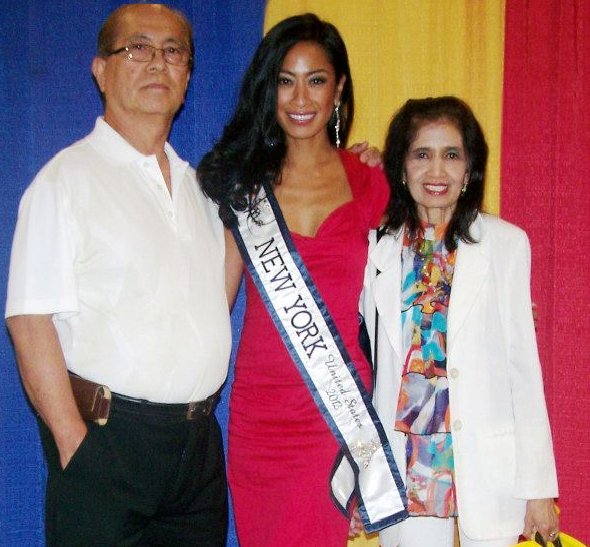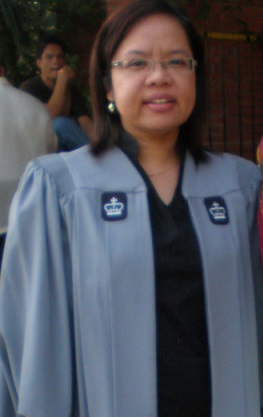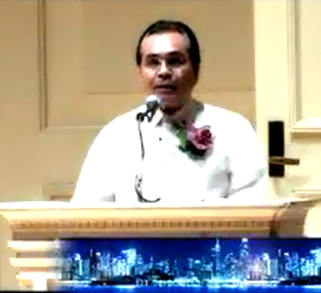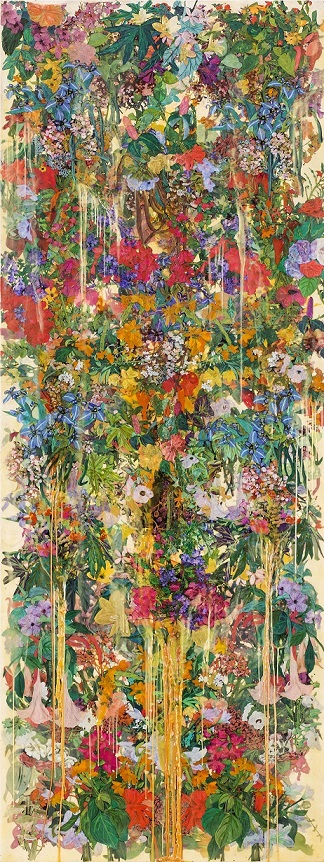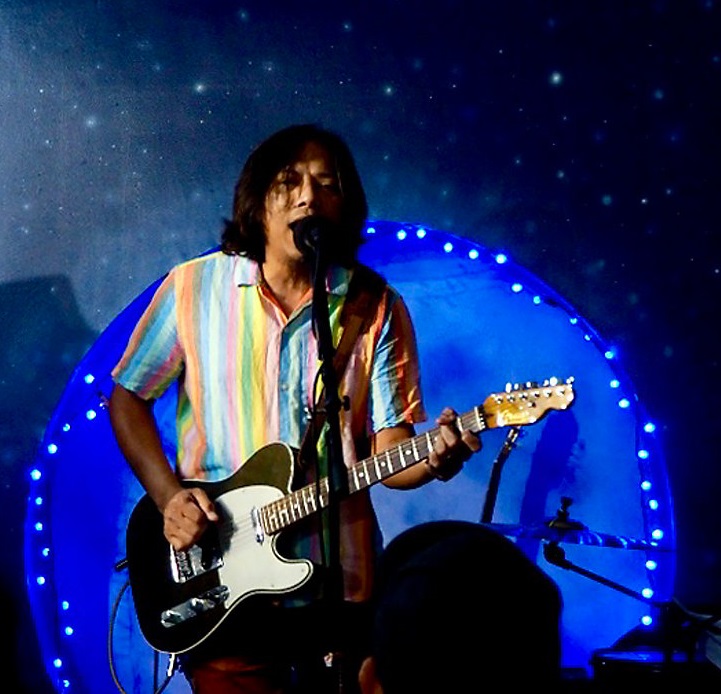Zosimo Quibilan wants to inspire younger FilAms to sing in Tagalog
By Allen Gaborro
Filipino American alternative pop musician Zosimo Quibilan feels strongly about expressing himself as a Filipino cultural artist. As the head of his band, spelled “ZOS!MO” (named after himself), Quibilan has been committed to expanding people’s awareness of Filipino culture, more specifically of the Tagalog language.
This is especially bespoken considering the fact that Zosimo lives in the United States where not a few FilAms could benefit from greater exposure to what Zosimo is striving to offer. Performing primarily out of Los Angeles, California, he laments that Filipino American singers tend to sing from the same English-language hymnal. Zosimo wants them to sing more of a new tune, this time in the words and lyrics of the Tagalog lexicon.
Tagalog has not consistently had a safe haven in America outside of Filipino communities, despite the country being a liberal receptacle of various cultures and languages. English’s de facto status as the lingua franca of the U.S. has not made it easy for Tagalog to carve out an enduring niche among many assimilated or American born-and-raised Filipinos.
It is against such a background that Zosimo’s idée fixe is to inspire Filipino Americans, especially younger ones, to get more in touch with the musical and linguistic discourses that Tagalog unifies around.
In a piece from the Spectrum News 1 website, Zosimo spoke about his music and how he wants it to make a cultural connection with those Filipino Americans who have come after him:
“Somehow, [Tagalog in America] gets lost… It’s my way of reaching out to 1.5 and 2nd generation Filipino Americans, like my kids, who are either actively searching for their roots or even just curious about it, to let them know that yes, we can be proud of our language, culture and heritage.”
It is in Tagalog that Zosimo tries to close the gap between Philippine history and FilAm unfamiliarity with that history. Inject into that effort some moving social commentary enriched by an ideal of heroic dignity about existence in the Philippines and you have before you, in Zosimo’s music, an artistic channel of radical compassion and the summoning forth of history with its grand gestures, brushstrokes, and magisteria.
In performing outside of the mainstream musical box, Zosimo both personalizes and collectivizes his lyrics so that they arouse any Filipino American’s sympathy for their brothers and sisters in the homeland:
“For three hundred years we’ve been shaking in the dark, Terrorized, dishonored, and enslaved.
There is no freedom where there is no light, There’s no light if no one will kindle the fire.
Where are you? I long to see True radiance, not just a spark. Where are you?
We shall paint history with our blood And seek true radiance, Etch the names of the real children, of the people.
Three hundred years of no complaint, is now time for our blood to boil With desire and fervor.”
-from the song “Hanapin ang Liwanag” (English translation from Tagalog)
When listening to Zosimo’s music, you can hear the influence of, in form and content, Freddie Aguilar, Parokya ni Edgar, the Eraserheads, Bob Dylan, James Taylor, and Carlos Santana. On another level, Zosimo’s listeners can also intuit in their mind’s eye the mesmerizingly earthy images of Filipino cinematic auteurs such as Kidlat Tahimik, Lino Brocka, and Lav Diaz as his songs remind Filipinos of their shared and memorialized foundations.
Another close link to Zosimo’s work that cannot be underestimated is Khavn De La Cruz, the iconoclastic film director. Khavn’s free-spoken, avant-garde style is a perfect match with Zosimo’s creatively signature music. They collaborated on the 2022 rock opera musical “2Bayani” which portrayed the capture and eventual execution of Andres Bonifacio during the revolution against Spain in the late 1890s.
Zosimo Quibilan wants to make it understood that Filipino Americans can still find delight in musical compositions in English. The distinguished musician, poet, and writer merely wants to make Tagalog, in terms of song and speech, as available and distinctive as it can be to Filipino Americans. This is the nature of what is Zosimo’s communing with the eternal traditions from which all Filipinos emanate from.
© The FilAm 2024

